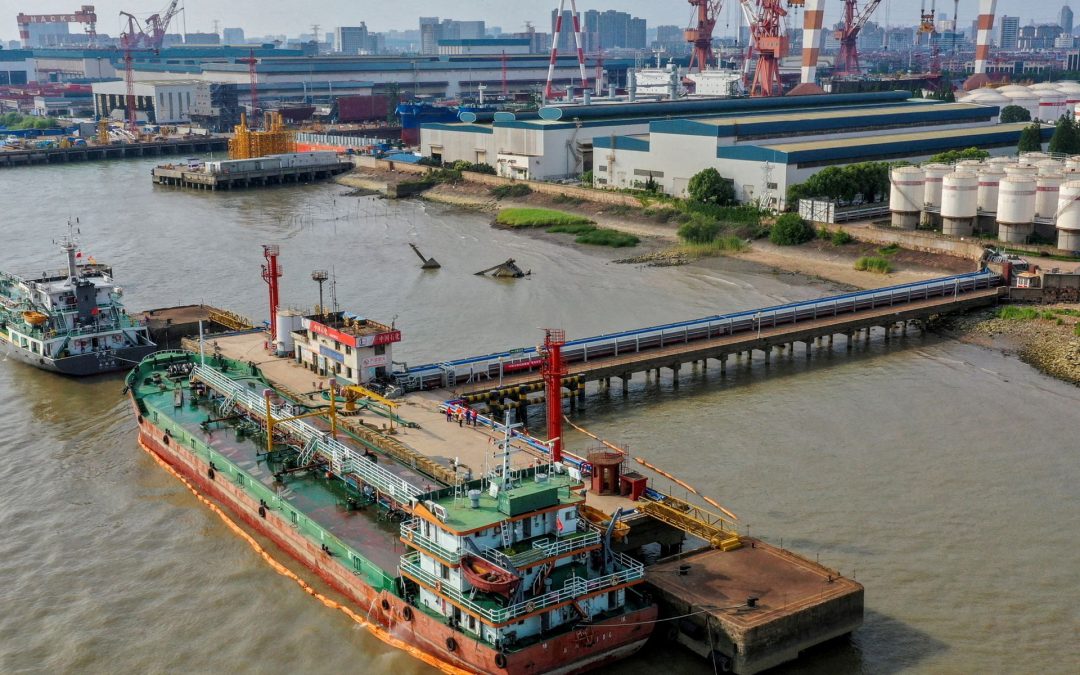A new simplified glossary that supports the industry to gain a better understanding of the terminologies and phraseologies used in life cycle assessments (LCA) and sustainability criteria relating to alternative marine fuels has been launched.
The free-to-access glossary on the ‘Understanding Life cycle assessment and sustainability criteria’ was developed by the Alternative low- and zero-carbon fuels workstream of the GreenVoyage2050 Global Industry Alliance to Support Low Carbon Shipping (Low Carbon GIA). The glossary can be accessed on the IMO GreenVoyage2050 website here. It provides users with clear explanations for common terms and phrases used to describe the principles and framework for marine fuel LCAs, based on the ISO 14040:2006 Environmental Management – Life Cycle Assessment Standard.
The list of terms explained were selected based on their inclusion in the ‘Report for the study on sustainability criteria and life cycle GHG emission assessment methods and standards for alternative marine fuels’ which was commissioned by the Low Carbon GIA and undertaken by Ricardo Energy & Environment and published in 2022.
The list of terms in the glossary is non-exhaustive, and terms as explained are in no way to be considered “agreed definitions” from an IMO perspective, and do not imply the expression of any opinion whatsoever on the part of the IMO. For definitions, users of the glossary are advised to refer to ISO 14040/44 as appropriate.
Mr. Robert Masse, Fleet-Network-Terminal Efficiency (Technical Efficiency), MSC Mediterranean Shipping Company and Chair of the Low Carbon GIA Alternative low- and zero-carbon fuels workstream, says: “Understanding of the ISO 14040/44 Standard and how it can support the assessment of the GHG profiles of alternative fuels is key for the industry’s transition to a low carbon future. However, terms and phrases in the Standard can be confusing to anyone not fluent in ISO-language. This is why Low Carbon GIA members from across the industry focused their efforts on clarifying and simplifying this language in an online glossary that anyone can access and use to better understand LCA and the frameworks involved for the assessment of GHG emissions for marine fuels from well-to-wake.”
This work has been undertaken in parallel to the IMO Guidelines on the life cycle GHG intensity of marine fuels (LCA Guidelines) that have been developed by IMO Member States, adopted in July 2023 as resolution MEPC.376(80). Work on the IMO LCA Guidelines is continuing via a correspondence group established by MEPC 80 in July 2023.
The Low Carbon GIA has been working to identify and contribute to removing key barriers to the uptake of alternative fuels through various research projects and several industry stakeholder roundtables under the Alternative low- and zero-carbon fuels workstream for many years.
To-date, resources developed that focus on supporting the industry’s adoption of alternative fuels include the aforementioned 2022 study on sustainability criteria and life cycle GHG emission assessment methods and standards for alternative marine fuels, roundtables on the certification of alternative marine fuels and, a regulatory mapping exercise that explored how alternative marine fuels and energy converters feature in key IMO Conventions and regulatory instruments. Low Carbon GIA efforts to explore different chain of custody models for the scale-up of alternative fuels is ongoing.
The Low Carbon GIA is a public-private partnership that operates under the framework of the IMO GreenVoyage2050 Project. The aim of the Low Carbon GIA is to develop innovative solutions to address common barriers to decarbonizing the shipping sector.
Source: Hellenic Shipping News





